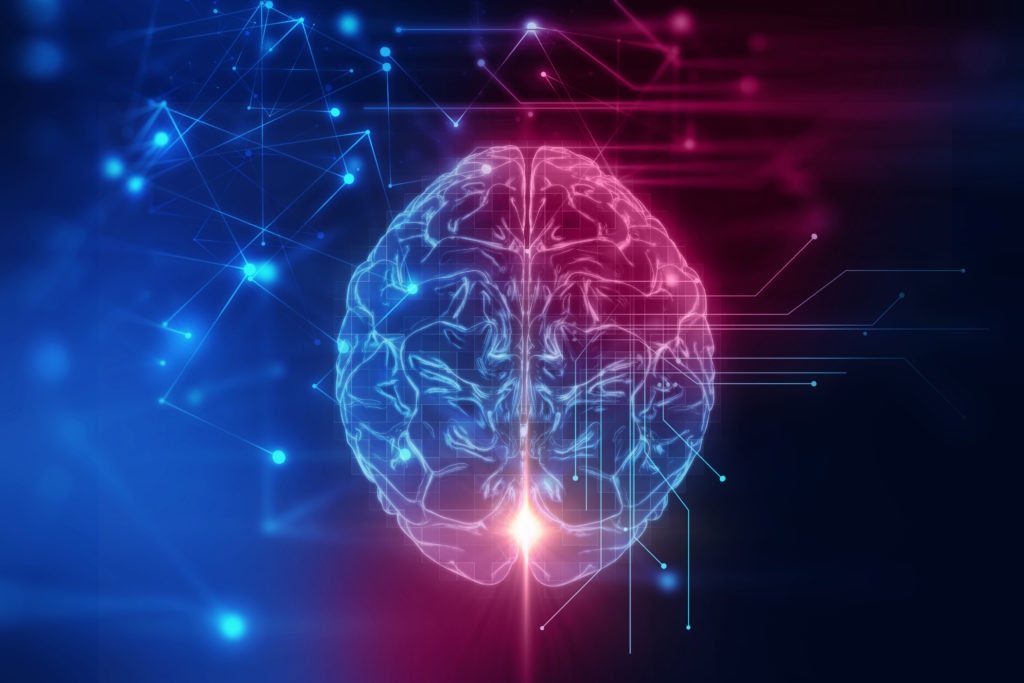ChatGPT: How AI will impact mental health care
Want to know what impact artificial intelligence will have on mental health treatment?
So do we, so we thought we’d go straight to the horse’s mouth, so to speak, and ask AI itself.
Specifically, we asked Open AI’s ChatGBT “write a 700-word article on ‘what impact will AI have on mental health treatment’.”
Below is the article written by the programme in about a minute. We’ve not edited it so you can judge the original on its merits.

Artificial intelligence (AI) is rapidly advancing and is being implemented in many fields, including healthcare.
One area where AI has the potential to make a significant impact is in the treatment of mental health conditions. In this article, we’ll explore the ways in which AI is currently being used to improve mental health treatment, as well as the potential benefits and challenges of using AI in this field.
One of the primary ways in which AI is being used to improve mental health treatment is through the development of virtual therapists and mental health apps. These digital tools use natural language processing and machine learning algorithms to engage with users and provide personalised therapy and support. For example, some virtual therapists use AI to generate personalised responses to a user’s text or speech input, providing a form of one-on-one therapy without the need for a human therapist. Other apps use AI to provide personalised recommendations for coping with mental health conditions, such as anxiety or depression.
AI is also being used to improve the accuracy and efficiency of diagnostic tools for mental health conditions. For example, machine learning algorithms can be trained to analyse patterns in brain scans or speech patterns to identify individuals at risk of developing a mental health condition or those who may be experiencing a relapse. Additionally, AI-based diagnostic tools can provide more accurate and consistent diagnoses than human clinicians, which can help to reduce diagnostic errors and improve the quality of care.
Another way AI is being used to improve mental health treatment is by providing personalised treatment plans based on an individual’s unique needs. Machine learning algorithms can analyse large amounts of data to identify patterns and predict which treatment options are most likely to be effective for a given patient. This can help mental health professionals to make more informed treatment decisions and improve the effectiveness of treatment.
There are potential benefits of using AI in mental health treatment, the first being that it can provide therapy and support to individuals who may not otherwise have access to it. For example, virtual therapists can provide therapy and support to individuals living in remote or underserved areas or to those who have difficulty accessing traditional therapy services due to mobility or financial constraints. Additionally, the use of AI in mental health treatment can help to reduce the burden on human therapists, allowing them to focus on more complex cases and improve the overall quality of care.
Another potential benefit of AI in mental health treatment is that it can help to reduce the stigma associated with mental health conditions. By providing therapy and support through digital means, individuals can access these services in a more discreet and private manner, which can help to reduce the shame and embarrassment associated with seeking help for mental health conditions.
However, there are also potential challenges to using AI in mental health treatment. One of the major concerns is that the use of AI may not be able to fully replicate the empathy and emotional intelligence of human therapists, which are essential components of effective therapy. Additionally, there are concerns that the use of AI in mental health treatment may further exacerbate existing inequalities in access to care, as individuals with greater technological literacy and access to digital devices are more likely to benefit from these services.
Another potential challenge is that, as AI technology becomes more advanced and data sets larger, personal data privacy and ethical concerns may arise. Moreover, there is a potential concern that AI-based diagnostic tools may be biased and inadvertently reinforce existing societal prejudices.
In conclusion, AI has the potential to greatly improve mental health treatment by providing therapy and support, improving diagnostic tools, and providing personalised treatment plans. However, it’s important to address the potential challenges, including the lack of empathy and emotional intelligence of AI-based systems, privacy, ethical and bias concerns, as well as ensuring access to digital mental health resources is equitable. Further research and development are needed.
Citations:
Six percent of this article was pulled by the AI from existing articles on the web. Using Grammerly’s plaguerism checker these are those sources.